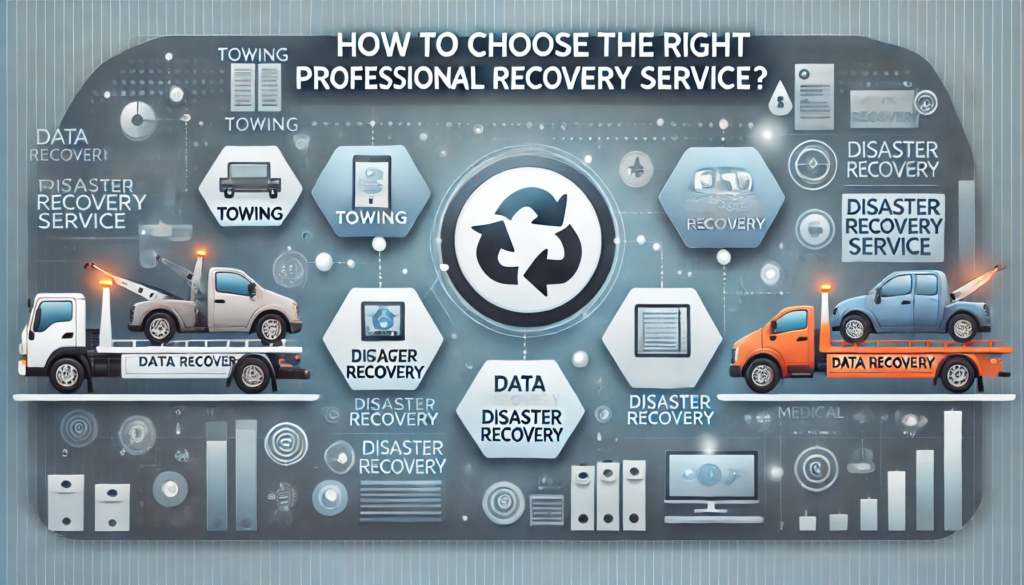In the dynamic landscape of search engine optimization (SEO), maintaining a strong online presence is critical for any website’s success. However, even well-established websites can encounter setbacks, such as Google penalties. These penalties, which can significantly impact your search rankings, are usually the result of algorithm updates or violations of Google’s Webmaster Guidelines. Understanding how to overcome Google penalties and the role of professional recovery services in this process is essential for restoring visibility and maintaining long-term success.
Table of Contents
What Are Google Penalties?
Google penalties are actions taken by Google that negatively affect a website’s search engine ranking. These penalties are usually categorized into two types: manual penalties and algorithmic penalties.
- Manual Penalties: These occur when a human reviewer at Google identifies a violation of their guidelines and manually applies a penalty to the website. Website owners are usually notified of manual penalties via Google Search Console, along with details about the specific issue.
- Algorithmic Penalties: These result from updates to Google’s search algorithms, such as the Panda, Penguin, or Helpful Content updates. Unlike manual penalties, algorithmic penalties are not communicated directly, making them harder to diagnose.
Regardless of the type, the impact of a penalty can be severe, leading to a dramatic loss of traffic, reduced search visibility, and diminished online authority.
Common Causes of Google Penalties
Understanding the root causes of penalties is the first step in overcoming them. Below are some of the most common reasons websites face penalties:
- Thin or Duplicate Content: Websites that feature low-quality, duplicate, or thin content provide little value to users, which can trigger penalties.
- Keyword Stuffing: Over-optimizing content by excessively using keywords can make your site look spammy and unnatural.
- Unnatural Backlinks: Links acquired through link schemes, paid link networks, or irrelevant sources often lead to penalties.
- Cloaking and Hidden Content: Displaying different content to users and search engines, or hiding text and links, is considered a violation of Google’s guidelines.
- Slow Page Speed and Poor Mobile Optimization: Technical shortcomings like slow-loading pages and non-responsive designs can harm user experience and trigger penalties.
- User-Generated Spam: Spammy comments or posts in forums and blogs hosted on your website can lead to penalties.
Why Addressing Google Penalties Is Essential?
Failure to address Google penalties promptly can have long-lasting consequences for your website and business. Here’s why it’s critical to resolve penalties:
- Loss of Organic Traffic: A penalty can cause significant drops in organic traffic, directly affecting lead generation and revenue.
- Reduced Credibility: Penalties may tarnish your brand’s online reputation and authority.
- Higher Advertising Costs: To compensate for lost organic traffic, businesses often increase ad spending, which is not always sustainable.
- Difficulty in Recovery: The longer a penalty goes unresolved, the harder it becomes to regain lost rankings and visibility.
The Role of Professional Recovery Services
Recovering from a Google penalty is a complex process that requires expertise and attention to detail. While some businesses attempt to resolve penalties independently, enlisting professional recovery services often leads to faster and more effective outcomes. Here’s how professional recovery services help:
Comprehensive Website Audit
Professional recovery services begin with an in-depth audit of your website. This includes analyzing content quality, backlinks, technical SEO issues, and compliance with Google’s guidelines. The audit helps identify the root cause of the penalty and creates a roadmap for recovery.
Backlink Analysis and Cleanup
Backlinks are one of the most common reasons for Google penalties. Professionals use advanced tools to assess your backlink profile, identifying spammy, low-quality, or irrelevant links. They then work to remove or disavow these links using Google’s Disavow Tool to minimize their negative impact.
Content Optimization
Content-related issues such as keyword stuffing, duplicate pages, or low-quality material are rectified by optimizing existing content or creating new, high-value pages. This step ensures your content aligns with user intent and provides a better experience for visitors.
Technical SEO Fixes
Professional recovery services address technical issues such as crawl errors, slow page speed, mobile usability problems, and incorrect redirects. These fixes improve your site’s performance and user experience, which are critical factors in recovering from penalties.
Manual Reconsideration Request
For manual penalties, recovery experts prepare and submit a detailed reconsideration request to Google. This request explains the actions taken to address the violation and seeks reinstatement of the website’s rankings.
Ongoing Monitoring and Maintenance
Penalty recovery is not a one-time effort. Professionals provide ongoing monitoring and maintenance to ensure your website remains compliant with Google’s guidelines and is protected from future penalties.
Benefits of Professional Recovery Services
Investing in professional recovery services offers several advantages over a DIY approach:
- Expertise: Recovery specialists have extensive experience dealing with a variety of penalties, enabling them to implement effective strategies.
- Time Efficiency: Professionals can resolve penalties faster, minimizing the impact on your business.
- Preventative Measures: Beyond penalty recovery, these services often include strategies to avoid penalties in the future.
- Advanced Tools and Techniques: Professionals have access to industry-leading tools for audits, analysis, and monitoring.
Steps You Can Take While Waiting for Professional Help
While professional recovery services are invaluable, there are steps you can take immediately to mitigate the impact of a penalty:
- Check Google Search Console: If you’ve received a manual penalty, review the details in Google Search Console and address the highlighted issues.
- Perform a Quick Content Audit: Remove or improve thin, outdated, or duplicate content.
- Review Backlink Profiles: Use tools like Ahrefs, SEMrush, or Google Search Console to identify and remove harmful backlinks.
- Fix Technical Issues: Address obvious technical errors, such as broken links, crawl issues, and page speed problems.
Preventing Future Penalties
Prevention is always better than recovery. To avoid future penalties, follow these best practices:
- Focus on Quality Content: Publish original, high-value content that meets the needs of your audience.
- Build Natural Backlinks: Avoid link schemes and prioritize organic link-building strategies.
- Follow Google’s Guidelines: Regularly review Google’s Webmaster Guidelines to stay updated on best practices.
- Conduct Regular Audits: Periodic audits of your website’s SEO, content, and backlinks can help identify potential issues before they escalate.
- Enhance User Experience: Prioritize site speed, mobile optimization, and intuitive navigation to improve overall user satisfaction.
How to Choose the Right Professional Recovery Service?

With so many recovery services available, choosing the right one can be daunting. Keep the following factors in mind when making your decision:
- Experience: Look for a service provider with a proven track record in penalty recovery.
- Transparency: Choose professionals who offer clear explanations of their methods and provide regular progress updates.
- Comprehensive Services: Opt for services that address all aspects of penalty recovery, including audits, content optimization, and technical fixes.
- Custom Solutions: Avoid one-size-fits-all approaches. The best recovery services tailor their strategies to your specific needs.
- Positive Reviews: Check client testimonials and online reviews to gauge the reliability and effectiveness of the provider.
The Road to Recovery
Overcoming Google penalties requires a combination of technical expertise, strategic planning, and ongoing efforts. Whether your site has been affected by a manual or algorithmic penalty, professional recovery services offer a reliable path to regaining lost rankings and rebuilding your online presence.
By addressing the root causes of penalties and implementing sustainable SEO practices, you can not only recover but also strengthen your website’s foundation for long-term success. Regular audits, adherence to guidelines, and a focus on quality will ensure your website remains resilient in the ever-evolving digital landscape.
If your website has been impacted by a Google penalty, don’t delay action. Seek professional help and take proactive steps to restore your online visibility, ensuring your website continues to serve as a valuable resource for users and a cornerstone of your business strategy.
FAQs: Overcoming Google Penalties with Professional Recovery Services
Can I recover from a Google penalty on my own?
While it is possible to recover on your own by fixing issues like content quality and backlinks, the process can be time-consuming and complex. Professional recovery services are often more effective as they have the expertise and tools to diagnose and resolve penalties quickly.
How long does it take to recover from a Google penalty?
Recovery timelines vary depending on the severity of the penalty and the actions required to fix it. Manual penalties often take weeks to resolve after submitting a reconsideration request, while algorithmic penalties may take longer, depending on Google’s algorithm updates.
Are professional recovery services worth the investment?
Yes, professional recovery services are worth it for most businesses. They save time, ensure thorough resolution, and provide ongoing support to maintain compliance and prevent future penalties.
Can professional recovery services help prevent future penalties?
Yes, many recovery services include preventative strategies like regular website audits, compliance with Google’s guidelines, and proactive monitoring of backlinks and content quality to safeguard against future penalties.
Will disavowing backlinks help recover from a penalty?
Yes, disavowing low-quality or spammy backlinks using Google’s Disavow Tool can reduce their impact on your site. This is a common practice in addressing penalties related to unnatural links.
Is content duplication always penalized?
Not always, but Google prefers original, high-value content. Duplicate or thin content can harm your rankings and may trigger penalties if it’s excessive or low-quality.
What tools are used to identify penalty causes?
SEO tools like Google Search Console, Ahrefs, SEMrush, and Screaming Frog are commonly used to identify content issues, analyze backlinks, and monitor site performance to diagnose penalty causes.
Can penalties be completely removed after recovery?
Yes, with proper action and adherence to Google’s guidelines, penalties can be lifted, and rankings restored. However, ongoing compliance is essential to maintain visibility and avoid future penalties.
Why did my rankings not fully recover after resolving the penalty?
While penalties can be lifted, full recovery may take time as Google reassesses your site. Factors like competition, remaining SEO issues, or slow algorithm updates can also delay ranking restoration.
How does user-generated spam lead to penalties?
Spammy comments, links, or forum posts on your site can violate Google’s guidelines. Monitoring and moderating user-generated content is crucial to avoid penalties.
Is resolving a penalty a one-time process?
Penalty recovery is not a one-time fix. Regular audits, ongoing monitoring, and adherence to SEO best practices are essential to maintaining a penalty-free status.
Do algorithm updates automatically penalize websites?
Algorithm updates don’t “penalize” websites in a traditional sense but can negatively affect sites that fail to meet the updated criteria for ranking.
Should I focus more on manual or algorithmic penalty recovery?
Both are important, but your approach depends on the type of penalty. Manual penalties require addressing specific issues flagged by Google, while algorithmic penalties need a broader review of content, links, and technical SEO.



